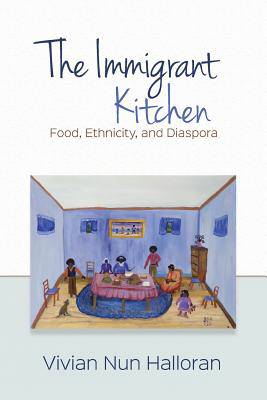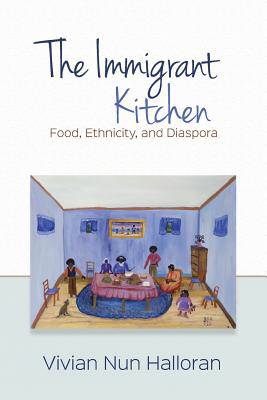
Je cadeautjes zeker op tijd in huis hebben voor de feestdagen? Kom langs in onze winkels en vind het perfecte geschenk!
- Afhalen na 1 uur in een winkel met voorraad
- Gratis thuislevering in België vanaf € 30
- Ruim aanbod met 7 miljoen producten
Je cadeautjes zeker op tijd in huis hebben voor de feestdagen? Kom langs in onze winkels en vind het perfecte geschenk!
- Afhalen na 1 uur in een winkel met voorraad
- Gratis thuislevering in België vanaf € 30
- Ruim aanbod met 7 miljoen producten
Zoeken
€ 55,95
+ 111 punten
Uitvoering
Omschrijving
In The Immigrant Kitchen: Food, Ethnicity, and Diaspora, Vivian Nun Halloran examines food memoirs by immigrants and their descendants and reveals how their treatment of food deeply embeds concerns about immigrant identity in the United States. Halloran argues that by offering a glimpse into the authors' domestic lives through discussions of homemade food, these memoirs demystify the processes of immigration, assimilation, acculturation, and expatriation-ultimately examining what it means to live as naturalized citizens of the United States. Having grown up hearing about their parents' often fraught experiences of immigration, these authors examine the emotional toll these stories took and how such stories continue to affect their view of themselves as Americans. Halloran covers a wide swathe of immigrant food memoirs, moving seamlessly between works by authors such as Austin Clarke, Madhur Jaffrey, Kim Sunée, Diana Abu-Jaber, Eduardo Machado, Colette Rossant, Maya Angelou, and Jonathan Safran Foer. The Immigrant Kitchen describes how these memoirs function as a complex and engaging mass media genre that caters to multiple reading constituencies. Specifically, they entertain readers with personal anecdotes and recollections, teach new culinary skills through recipes, share insight into different cultural mores through ethnographic and reportorial discussions of life in other countries, and attest to the impact that an individual's legal immigration into the United States continues to have down through the generations of his or her American-born families.
Specificaties
Betrokkenen
- Auteur(s):
- Uitgeverij:
Inhoud
- Aantal bladzijden:
- 184
- Taal:
- Engels
Eigenschappen
- Productcode (EAN):
- 9780814252673
- Verschijningsdatum:
- 4/03/2016
- Uitvoering:
- Paperback
- Formaat:
- Trade paperback (VS)
- Afmetingen:
- 152 mm x 229 mm
- Gewicht:
- 254 g

Alleen bij Standaard Boekhandel
+ 111 punten op je klantenkaart van Standaard Boekhandel
Beoordelingen
We publiceren alleen reviews die voldoen aan de voorwaarden voor reviews. Bekijk onze voorwaarden voor reviews.









